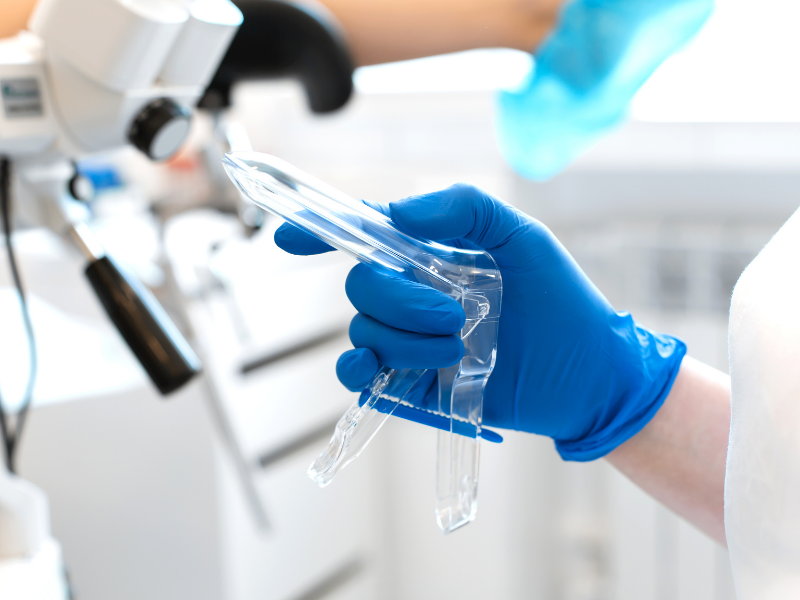
If your most recent pap smear came back abnormal, our next step here at Eagle’s Landing OB/GYN might be to do a colposcopy. This test takes the pap smear one step further to help us diagnose cancer or other problems. We don’t want you to fear a colposcopy. It’s a relatively non-invasive procedure that is much like getting a pap smear. Let’s talk about this gynecological procedure and why you might need it.
Reasons For a Colposcopy
The primary reason for a colposcopy is to find abnormal cells that could cause cancer in your cervix, vagina, or vulva. This procedure uses a colposcope, which is a lighted and magnified instrument, to help your gynecologist spot abnormal or cancerous cells as well as genital warts and polyps. To be completely honest, a colposcopy is much like a colonoscopy, only for your vaginal and cervical areas and vulva.
Doesn’t the Pap Smear Do This?
A pap smear is different from a colposcopy. The pap smear takes a sample of cervical cells to test them for cancer. As we said above, if your pap comes back abnormal, the colposcopy allows your gynecologist to look for these abnormal or cancerous cells under highly magnified conditions. The pap uses a lab test to determine if the cells are normal and the colposcopy uses a visual examination to find abnormal cells.
What to Expect Before and During the Colposcopy
If it’s determined that you need a colposcopy, we will schedule one when you are not having your period. We may also recommend you refrain from OTC pain meds and any vaginal creams, foams, or medications for up to two days prior to the procedure. We will also take into account whether you are pregnant and how far along you are in your pregnancy. All of these things can affect the colposcopy.
The colposcopy itself will feel a bit like a pap smear, only less invasive. We will ask that you lie down on the exam table and place your feet in the stirrups. We’ll use a speculum to open your vagina so the gynecologist can see your cervix better. Your vulva, vagina, and cervix will be cleansed with iodine or a vinegar solution and then the colposcope will be placed in front of the vagina but not go inside.
What Happens After the Colposcopy?
If the colposcopy does not reveal abnormal cell growth, you won’t experience any effects after the procedure. If the doctor does find abnormal cells on the vulva, inside the vagina, or on the cervix, he or she may do a biopsy. This could leave you with vaginal discharge, including blood, and some mild cramping or soreness after the colposcopy. You should not experience heavy bleeding or excess pain.
Your gynecologist will discuss the results of the colposcopy or any biopsy with you directly. If the colposcopy results indicate the possibility of cancer, this, too, will be discussed and the proper referrals and treatment plans put in place, including additional testing and treatment here at Eagles Landing OB/GYN in Stockbridge, GA.
